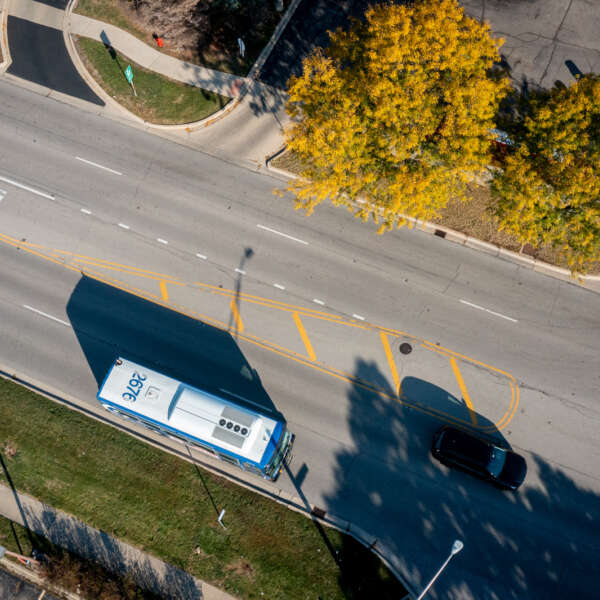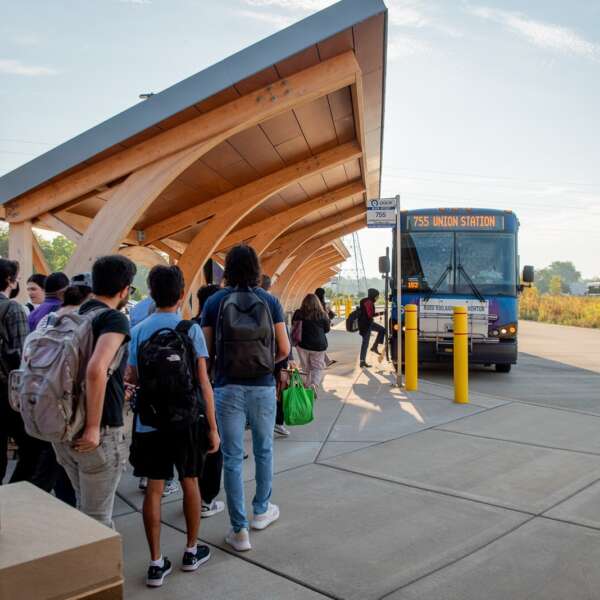Voters overwhelmingly support transit nationally this election cycle
November 21, 2024
November 21, 2024

Voters across the nation were not only asked to choose their elected representatives this November, but in many states the future of their local transit systems was on the ballot. Across 11 states, 25 of 33 ballot measures saw major victories for regional transit systems in the 2024 General Election. Between the General, Primary, and other special elections this year, these victories will generate an estimated $25 billion nationally in new and continued annual revenue for both transit operations and capital improvements.
Our region is not alone in facing fiscal challenges that put service at risk. Transit systems across the nation all suffered losses in ridership and revenue due to changes in work patterns and systemic funding shortfalls exacerbated by the pandemic, and several states have acted already to address their own fiscal cliffs. Many states require voter approval for new revenue, however, and posed those questions directly to voters—who overwhelmingly supported transit.
Illinois does not have binding ballot referenda for new transportation revenue, and any potential new funding for transit operations is not expected to go to the ballot. But there are still lessons transit agencies and advocates can learn from how the public responded to campaigns for new transit funding.
Nashville’s Choose How You Move campaign raised local sales taxes by half of a cent to accelerate expansion of the city’s bus system, make transit more accessible, and build multi-modal infrastructure throughout the city. More than two-thirds of voters supported the tax increase, which will have minimal impact on individual taxpayers and make investments in the city’s transit network that are nearly a decade in the making.
Voters in Maricopa County and Flagstaff, AZ, were asked to extend their local sales taxes to continue transit operations there. A vast majority of voters approved the measures, allowing local transit agencies to expand service and make needed capital improvements. These successes relied on campaigns that emphasized the high proportion of transit riders in Flagstaff, two-thirds of whom do not own a vehicle, and the promotion of reduced commute times in Phoenix, which has one of the shortest commute times of any major city in the country in part thanks to its robust transit network.
One ballot measure that failed was actually a win for transit. Washington’s Initiative 2117, which would have repealed portions of the state’s Climate Commitment Act, was resoundingly rejected by nearly 62% of voters. The Climate Commitment Act is set to provide $3 billion for public transportation over the next 16 years through the Move Ahead Washington grant program, supporting both operations and capital improvements. Despite a well-funded campaign to repeal the Act, voters opted to keep in place a slate of programs aimed at mitigating the effects of climate change.
San Francisco’s Fund the Bus campaign would have generated an estimated $25 million in new annual revenue through a business tax on ridesharing companies. The revenue was planned for the expansion of Muni bus service and to fund new free and reduced fare programs for students, seniors, people with disabilities, and riders experiencing low incomes. Proposition L was supported by a majority of voters; however, Proposition M, a ballot initiative with a conflict clause on tax collections, passed with more votes and nullified any effects the Fund the Bus campaign would have had. Muni must now consider alternative sources of revenue or service cuts.
South Lake Tahoe residents were asked to implement a new vacancy tax on the 44% of homes left empty for a majority of the year, which would have generated an estimated $10-20 million annually with some funding dedicated to transit. The initiative was modeled after the vacancy tax passed in Berkeley, CA. More than 75% of voters rejected the measure, leaving the city’s housing crisis and transit funding challenges unmet.
Voters in Cobb and Gwinnett Counties rejected two measures that would have used sales tax revenues to expand bus service and make needed transportation improvements. Atlanta’s suburbs are experiencing rapid growth, and both counties will need to explore revenue options to expand service to major destinations, like the proposed bus rapid transit lines to Hartsfield-Jackson Atlanta International Airport.
Voters almost everywhere recognized the value transit brings to their communities, supporting additional funding to continue and expand service— an 83% success rate for the entire year, according to the American Public Transportation Association’s Center for Transportation Excellence. Funding referenda passed by wide margins in both “red” and “blue” states to support transit systems that serve both urban and rural areas. Successful campaigns emphasized not only the role transit plays in the lives of its riders, but also included specific plans on how agencies would expand or improve service. While some measures did enact new sources of funding, those appeared more difficult to pass overall, and the majority of successful measures either extended or increased existing revenues.
Illinois policy makers must reach a transit funding solution by spring 2025 to avoid service cuts of up to 40%. While Illinois does not require a referendum for most sources of revenue, lawmakers should be encouraged by the level of support voters across the country had for these ballot measures. The RTA is working with policy makers at all levels of government to develop sustainable funding solutions and improve the system for all riders. Join the Transit is the Answer Coalition to help bring about the legislative changes needed to support transit at this pivotal moment.
Subscribe to our Newsletter
Related Articles
 Coalition members provide feedback on ‘Transforming Transit,’ RTA’s vision for improved service and accountability
Coalition members provide feedback on ‘Transforming Transit,’ RTA’s vision for improved service and accountability
Nearly 200 riders, advocates, and other stakeholders met virtually with the RTA on February 11 for the sixth quarterly Transit is the Answer Coalition meetin...
February 20, 2025 Far South Halsted Corridor Study prepares for future Pace Pulse service
Far South Halsted Corridor Study prepares for future Pace Pulse service
An RTA Community Planning project kicked off in late 2023 as a crucial step in bringing Pace Pulse service to Chicago’s south suburbs. The Far South Halsted ...
February 19, 2025 RTA proposes reforms to prioritize capital projects, maximizing impact of funding
RTA proposes reforms to prioritize capital projects, maximizing impact of funding
RTA is proposing a historic restructuring of the region’s transit governance to maximize the impact of new operating funding and ensure all riders experience...
February 5, 2025 RTA proposes reforms to integrate fares, require accountability for faster and more reliable transit
RTA proposes reforms to integrate fares, require accountability for faster and more reliable transit
RTA is proposing a historic restructuring of the region’s transit governance to maximize the impact of any new operating funding and ensure all riders experi...
February 5, 2025 For the third year in a row, regional transit ridership was up by double-digits in 2024
For the third year in a row, regional transit ridership was up by double-digits in 2024
Ridership across the Chicago region’s transit system continued to increase throughout 2024, according to the latest data from CTA, Metra, and Pace. The regio...
January 28, 2025 RTA is seeking $1.5 billion in annual operating funding. What would that mean for your commute?
RTA is seeking $1.5 billion in annual operating funding. What would that mean for your commute?
On January 15, RTA released Transforming Transit, a vision for the regional transit system with $1.5 billion in annual operating funding supported by a stron...
January 28, 2025